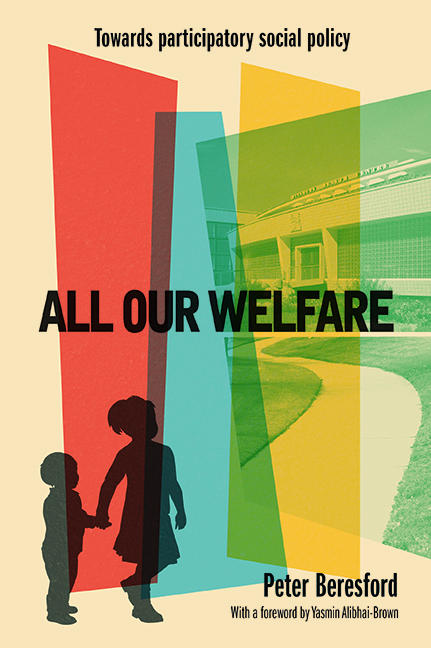Book contents
- Frontmatter
- Contents
- List of photographs and sources
- Foreword
- Dedication
- Acknowledgements
- Introduction Owning not othering our welfare
- Part One The legacy of the past
- Part Two The way to the future
- Afterword The future: a different way forward?
- Appendix One The family
- Appendix Two Research projects and related publications
- References
- Index
Thirteen - Welfare policy for the twenty-first century
Published online by Cambridge University Press: 01 September 2022
- Frontmatter
- Contents
- List of photographs and sources
- Foreword
- Dedication
- Acknowledgements
- Introduction Owning not othering our welfare
- Part One The legacy of the past
- Part Two The way to the future
- Afterword The future: a different way forward?
- Appendix One The family
- Appendix Two Research projects and related publications
- References
- Index
Summary
The welfare state is not about dependency: it is about opportunity
(Mary O’Hara, 2014b)Beggars do not work, it is said; but, then, what is WORK? A navvy works by swinging a pick. An accountant works by adding up figures. A beggar works by standing out of doors in all weathers and getting varicose veins, chronic bronchitis, etc. It is a trade like any other; quite useless, of course – but, then, many reputable trades are quite useless. And as a social type a beggar compares well with scores of others. He is honest compared with the sellers of most patent medicines, high-minded compared with a Sunday newspaper proprietor.
(George Orwell, 1933, 206)Principles for welfare
The academic discipline of social policy has had a particular concern with categorising existing systems of welfare. In this chapter, the aim instead is to begin to explore what a welfare state might look like – if it both took on the ideas of its users and advocates and addressed the weaknesses identified by its critics. In earlier chapters, we explored the principles and structures of existing welfare systems, as well as exploring pioneering alternatives. In this chapter the aim is to look more closely at the latter, while offering the former as a yardstick to set them against. Here we will focus at a policy level, in the next chapter we will explore the detail of support for people’s welfare and well-being.
In his influential book The three worlds of welfare capitalism, the Danish sociologist Gøsta Esping-Andersen identified three sub-types of welfare state models. While these classifications have come in for increasing criticism, they are still an important starting point for analysing welfare arrangements (Esping-Andersen, 1990). The three dominant types Esping-Andersen identified were:
• the universalist social democratic welfare state;
• the Christian democratic welfare state, based on the principle of subsidiarity (decentralisation) and the dominance of social insurance schemes;
• the liberal (residual and market dominated) welfare state.
While these embody fundamental differences, there are also important similarities. All have been susceptible to increasing pressures to be:
• hierarchical
• managerialist
• market-driven
• ‘expert’-based.
Taken together these characteristics tend to accent inequalities, as well as differences and distinctions between welfare producers and welfare consumers. They are primarily concerned with the nature of the provider, rather than the form of provision and its relation with service users, which does not bode well for the latter.
- Type
- Chapter
- Information
- All our WelfareTowards Participatory Social Policy, pp. 263 - 298Publisher: Bristol University PressPrint publication year: 2016



